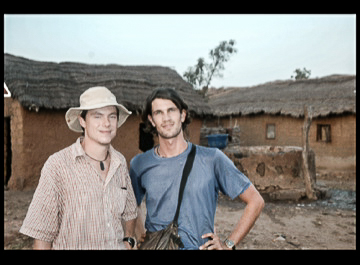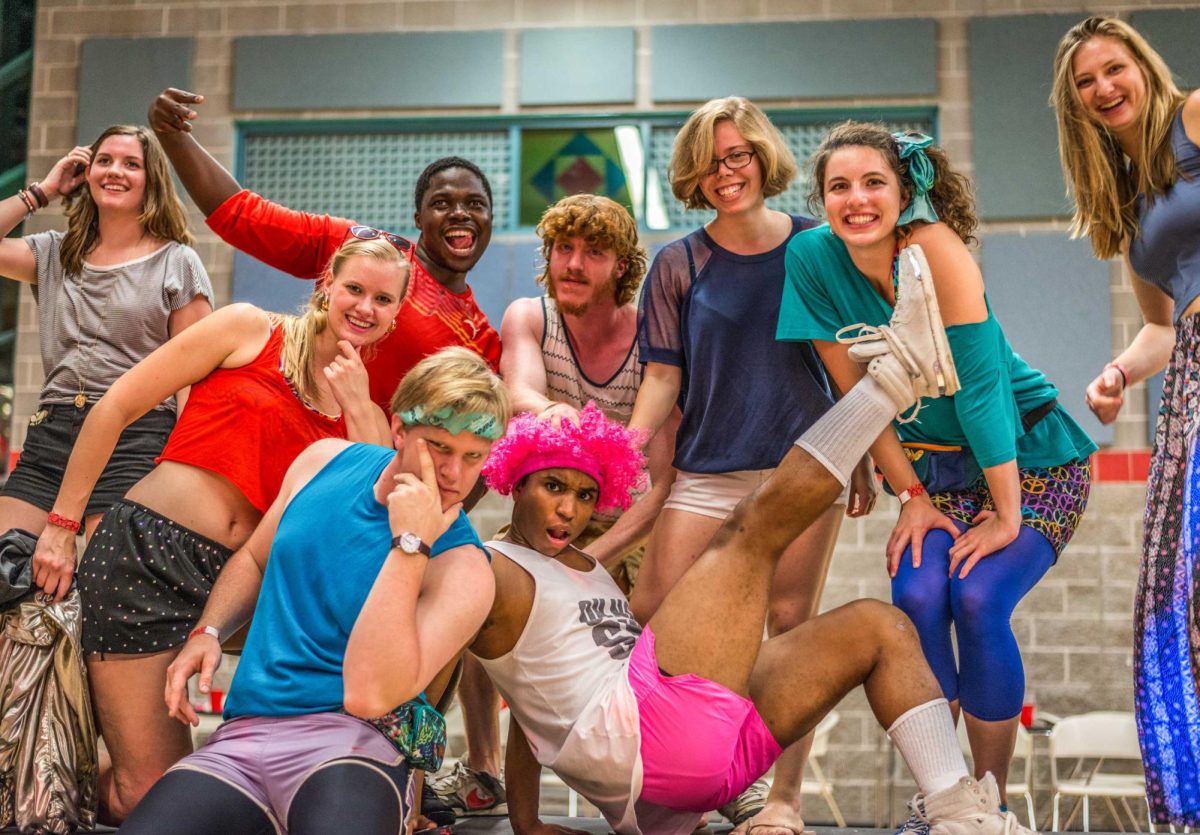Grinnell was recently named the number 10 school for graduate participation in the Peace Corps under the “Small College and Universities” category, according to rankings released by the Peace Corps, moving up 11 spots from last year. Currently, 11 Grinnell graduates are serving in the Peace Corps, and Grinnell has had a long-standing relationship with the government service. In all, 374 Grinnellians have served in the Peace Corps since its creation in 1961.
In addition to Grinnell’s high numbers of student participation, and true to Grinnell’s commitment to social service, the College also employs Peace Corps veterans. One of the more prominent figures on campus, former President of the College and Professor Emeritus George Drake, History, served with his wife in Lesotho in 1991 and 1993. After leaving his position as President, Drake and his wife Sue decided they needed to take a break from Grinnell.
“I nevertheless was going to stay at Grinnell, so the question was how to get out of town when my [successor] came because it’s usually a bad idea for the old president to hang around,” Drake said.
The couple’s son was serving in Belize at the time, and encouraged by the fact that there were people their age serving with their son, the Drakes signed up.

“I had never served in the military so it was another way to serve the country,” Drake said. Both found places in Lesotho after a search for two job openings that would fit their interests and qualifications. Drake was placed as an English teacher at an all-girls Catholic school and his wife Sue trained teachers in six primary schools all around Lesotho.
Not only was the experience one of personal growth for the Drakes, the College also benefitted from the insight they gained abroad.
“I knew nothing about Africa before I went and when I came back I started teaching African History,” Drake said. All courses on Southern Africa taught by Drake stem from his Peace Corps experience.
Professor Leif Brottem, Political Science, is also a Peace Corps alum, having served in Benin from 2002 to 2004 after leaving college. Motivated by his interest in West Africa, Brottem was inspired to join after doing work in sustainable development.
“I realized that if I wanted to really specialize and focus on West Africa I needed to go and live there for a while,” he said.
This experience proved invaluable for Brottem, as it helped the interest he had in the area grow and turn into an academic career.
“I was interested in getting much more acquainted and in-depth knowledge of the place,” he said. Serving as an environmental conservation volunteer, Brottem learned firsthand about the development issues facing West Africa and how important sustainability was to the process.
In terms of Grinnell’s involvement and prevalence in the Peace Corps, Brottem felt that the College’s ideals align well with those of the Peace Corps.
“It’s a natural fit,” he said.
Grinnell’s commitment to service overall, through programs like the Peace Corps, has been a consistent selling point for the College. “It really enhances the education of Grinnell graduates, there’s no question. It’s a marvelous educational experience in the fullest sense of the word, you just live a different life,” Drake said.
For recent Grinnell graduates, the Peace Corps presents a unique opportunity. Inspired by an Alt-Break trip to Waco, Texas, Jarrett Thompson ’14 decided to apply to serve. He learned about sustainable agriculture and saw the Peace Corps as a way to learn more about this line of work.
“I thought that the Peace Corps would be a great opportunity to help … gain job experience and just experience different cultures as a whole,” he said. Thompson was accepted to the Zambia program for sustainable agriculture, environment protection and resource management. He is scheduled to depart in one year.
The grueling application process may be a turn-off for some, but those who push through it find it very rewarding. “The process is very long, but very much worth it for any student who is willing to put in the effort,” Thompson said.
Thompson looks forward to his departure and participating in the Peace Corps, and is already thinking about how to approach his service.
“If anyone ever decides to volunteer in any way in another nation, go in with an open mind. Ask the people what you can do for them, don’t ask yourself what you can do for them,” Thompson said.
Drake felt that Grinnellians would benefit from service in the Peace Corps, and he encouraged interested students to consider applying.
“If you feel you can commit two years, it’s a very valuable commitment,” he said.

























































Doug Cutchins • Mar 10, 2015 at 3:08 am
Yeah, anonymous, I’m pretty sure George Drake joined the Peace Corps after being Grinnell’s president because he couldn’t find a job. Excellent point.
Joining the Peace Corps two years after graduation was one of the best, most rewarding, most important and life-changing experiences I possibly could have had.
Doug Cutchins ’93
Peace Corps Volunteer in Suriname, 1995-97
Anonymous • Mar 6, 2015 at 10:07 pm
Is this necessarily good? I honestly think it’s because people don’t find jobs… it’s pretty sad.